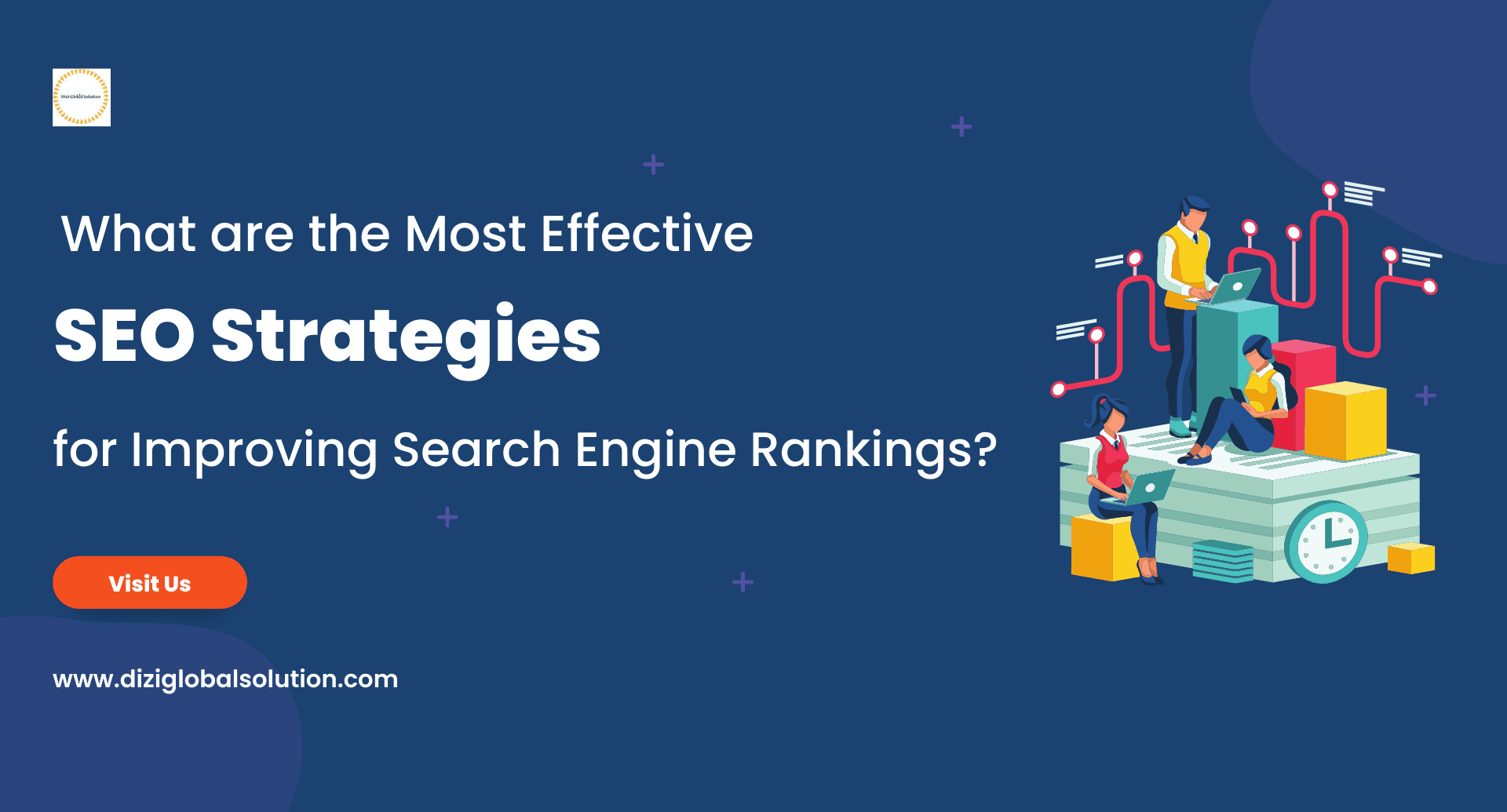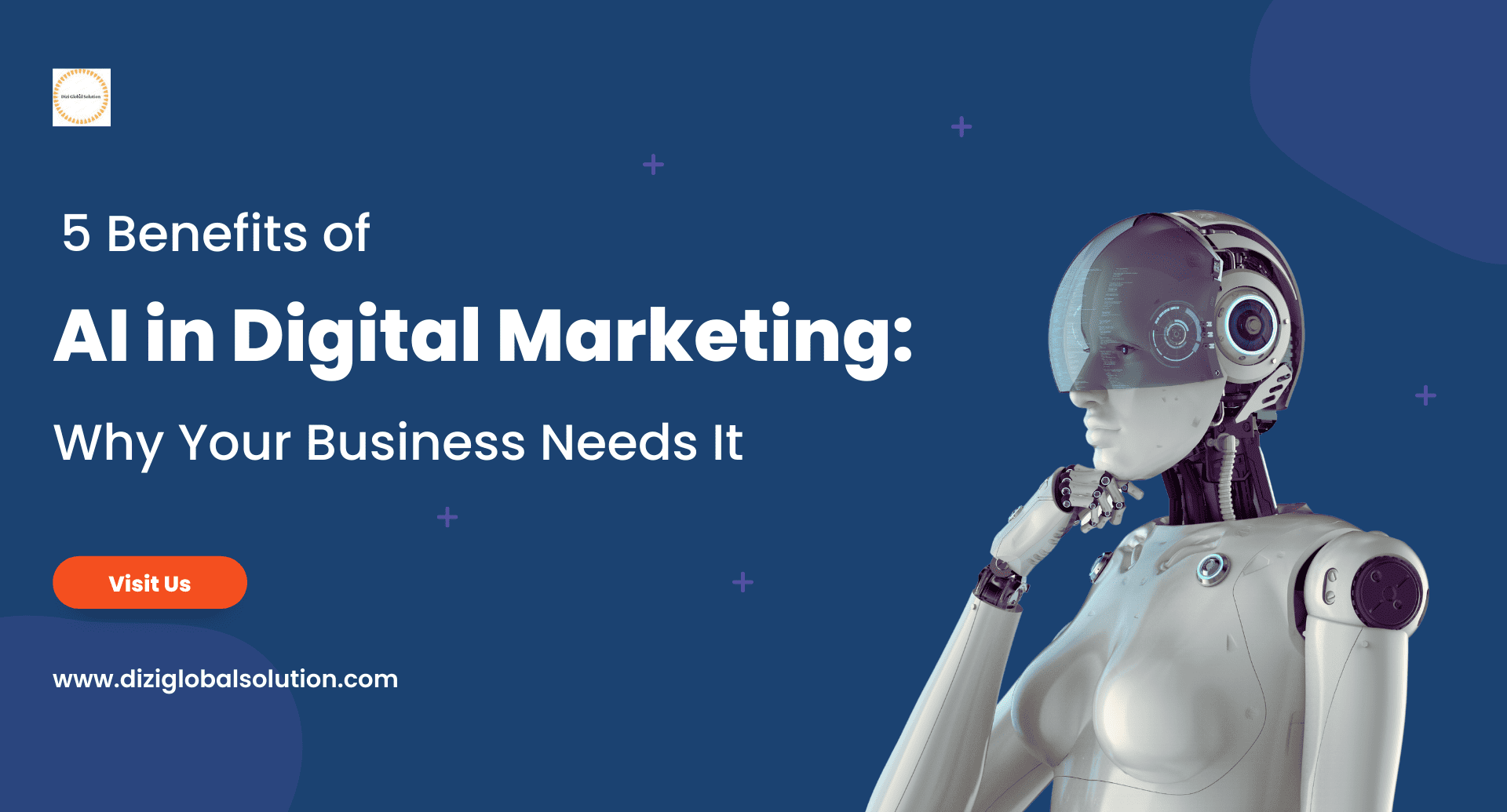What are the Most Effective SEO Strategies for Improving Search Engine Rankings?
Search engine optimization (SEO) is a critical component of any successful digital marketing strategy. It is the process of optimizing your website and its content to improve your organic search engine rankings. By ranking higher in SERPs, your website has a better chance of attracting more traffic, leads, and customers. However, businesses compete for top search results, making it difficult to know where to start. In this blog post, we’ll explore some of the most effective SEO Strategies for improving search engine rankings. 1. Keyword research and optimization Keyword research is the foundation of any effective SEO Strategies. It involves identifying the keywords and phrases that your target audience is using to search for products or services like yours. By optimizing your website and its content around these keywords, you can improve your visibility in search engine results pages. When conducting keyword research, it’s important to consider the search volume, competition, and relevance of each keyword. Tools like Google’s Keyword Planner and Ahrefs can help you find keywords with high search volume and low competition. Once you’ve identified your target keywords, you can optimize your website’s content, including page titles, meta descriptions, to incorporate these keywords naturally. 2. High-quality content Search engines are becoming increasingly sophisticated in their ability to understand the intent behind search queries. As a result, they prioritize websites and content that provide high-quality, relevant information that meets the needs of searchers. Creating high-quality content is a critical component of any effective SEO strategy. Create content that is optimized for specific keywords and provides value to your target audience. When creating content, it’s important to focus on the user experience and provide information that’s helpful, informative, and engaging. 3. On-page optimization On-page optimization refers to the process of optimizing your website’s content and structure to improve its relevance and visibility in search engine results pages. Optimize page titles, meta descriptions, headers, and body copy to incorporate target keywords and provide clear, concise information to searchers. On page seo is also one one of the SEO Strategies. It include optimizing images and videos, using internal linking to connect related pages, and making your website mobile-friendly and easy to navigate. On-page optimization can improve the relevance and authority of a website, helping to boost search engine rankings. 4. Link Building Link building is the process of acquiring links from other websites back to your own website. Search engines view links as a vote of confidence in the quality and authority of your website. When high-quality websites link back to your website, it can improve your visibility and authority in search engine results pages. However, it’s important to focus on quality over quantity when it comes to link building. Low-quality links can harm search engine rankings, so it is important to acquire high-quality links from reputable websites in your industry. This can be done through guest blogging, creating shareable content, and reaching out to other websites to request a link back to your website. 5. Technical SEO Technical SEO is the process of optimizing the technical aspects of a website to improve its performance and search engine visibility. This includes optimizing page load times, using HTTPS encryption, and ensuring the website is crawlable and indexable by search engines. Work with an experienced SEO professional to ensure your website is optimized for search engine visibility and performance. Here are some key points to remember for technical SEO: Optimize website structure and navigation Use descriptive and keyword-rich URLs Ensure fast page speed and performance Optimize for mobile-friendliness Implement schema markup Create an XML sitemap Use a robots.txt file to control crawling and indexing. 6. Local SEO If your business serves a local audience, local SEO can be a powerful tool for improving your search engine visibility. Local SEO involves optimizing your website and content for local search queries, such as “restaurants near me” or “plumbers in [city name].” Optimizing your website for local search can help increase visibility in search engine results pages and attract more local customers. To optimize your website for local search, you can: Claim and optimize your Google My Business listing: This includes providing accurate business information, such as your address, phone number, and hours of operation, and encouraging customers to leave reviews. Use local keywords in your website’s content, including page titles, meta descriptions, headers, and body copy: This includes incorporating your city or region into your keywords and content. Build local citations: This includes creating listings for your business on local directories, such as Yelp, Yellow Pages, and Citysearch. Use structured data markup to improve visibility in local search results. Participate in local events and sponsorships to increase visibility and attract customers. 7. User Experience Search engines prioritize websites that provide a positive user experience. This includes factors such as page load times, mobile responsiveness, and ease of navigation. Provide a positive user experience to improve search engine rankings and attract more traffic, leads, and customers. To improve your website’s user experience, you can: Optimize your website’s page load times: This includes reducing the size of images and videos, minimizing HTTP requests, and using a content delivery network (CDN). Ensure your website is mobile-friendly and responsive: This includes using a responsive design that adapts to different screen sizes and optimizing for mobile search. Use clear and concise navigation that makes it easy for users to find the information they’re looking for. Use clear and concise headlines, subheadings, and body copy to make content easy to understand. By focusing on the user experience, you can improve your website’s search engine rankings and attract more traffic, leads, and customers to your business. Conclusion Improving your search engine rankings requires a comprehensive SEO strategy that incorporates a range of techniques, including keyword research and optimization, high-quality content, on-page optimization, link building, technical SEO, local SEO, and user experience. Above we mentioned all the 7 SEO Strategies which you need to focus to rank your website higher on the SERPs. By focusing on these key areas, you can improve
What are the Most Effective SEO Strategies for Improving Search Engine Rankings? Read More »





